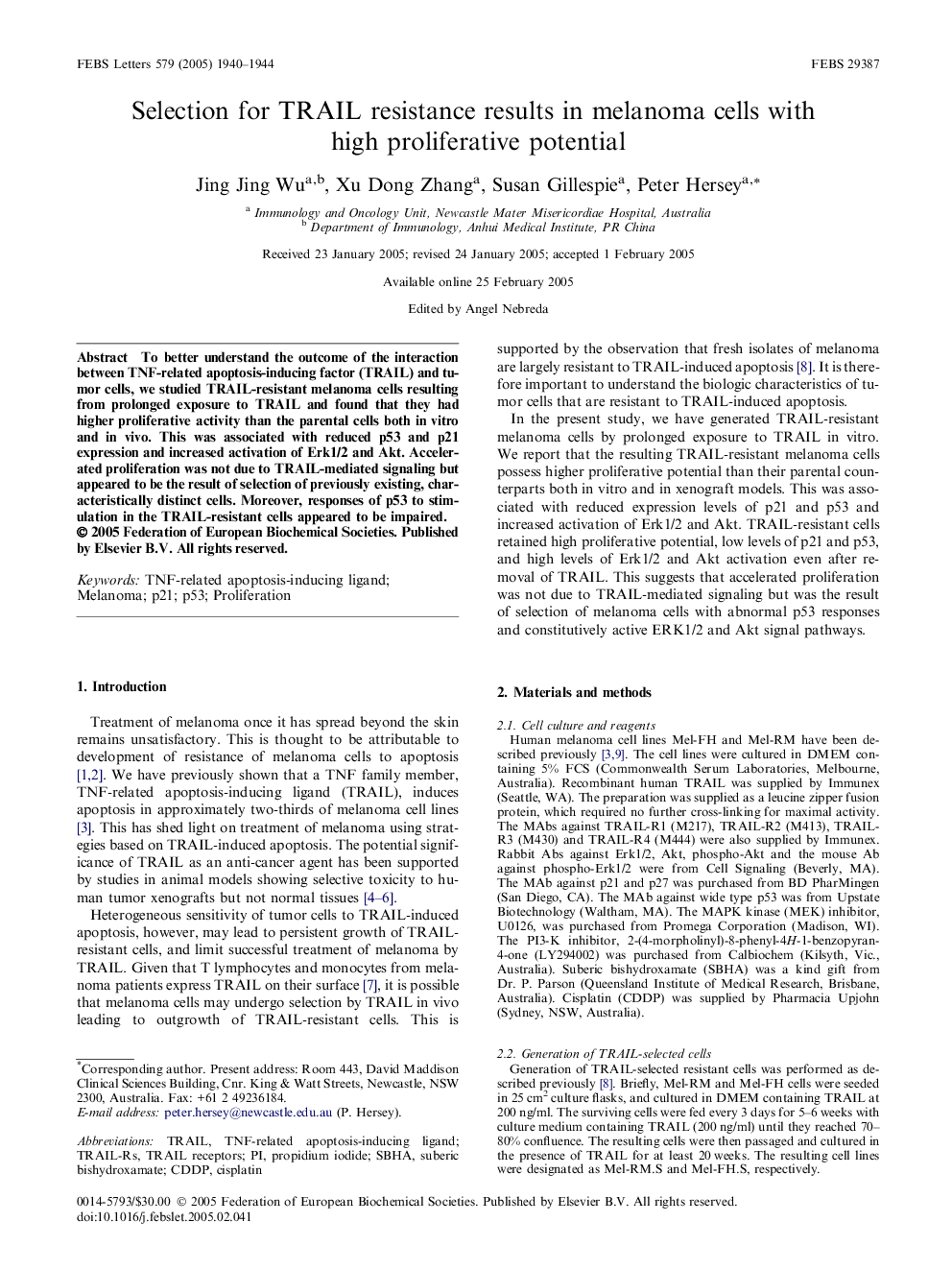| Article ID | Journal | Published Year | Pages | File Type |
|---|---|---|---|---|
| 2051728 | FEBS Letters | 2005 | 5 Pages |
Abstract
To better understand the outcome of the interaction between TNF-related apoptosis-inducing factor (TRAIL) and tumor cells, we studied TRAIL-resistant melanoma cells resulting from prolonged exposure to TRAIL and found that they had higher proliferative activity than the parental cells both in vitro and in vivo. This was associated with reduced p53 and p21 expression and increased activation of Erk1/2 and Akt. Accelerated proliferation was not due to TRAIL-mediated signaling but appeared to be the result of selection of previously existing, characteristically distinct cells. Moreover, responses of p53 to stimulation in the TRAIL-resistant cells appeared to be impaired.
Keywords
Related Topics
Life Sciences
Agricultural and Biological Sciences
Plant Science
Authors
Jing Jing Wu, Xu Dong Zhang, Susan Gillespie, Peter Hersey,
